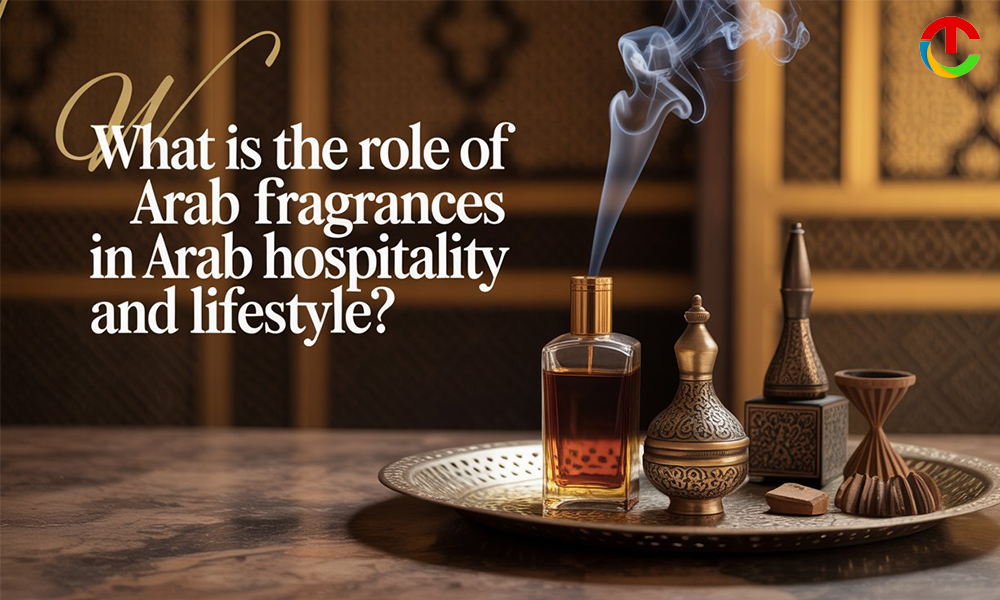In the Arab world, fragrance is far more than a luxury; it is an expression of identity, culture, and tradition. From welcoming guests with the warmth of incense to gifting perfumes during special occasions, Arab fragrances are deeply woven into hospitality and lifestyle. This rich tradition not only reflects heritage but also continues to shape modern living across the GCC and beyond.
Fragrance as a Symbol of Hospitality
Hospitality is a cornerstone of Arab culture, and fragrance plays an integral role in it. In many homes across the GCC, guests are greeted with bakhoor, oud, or musk as a gesture of respect and warmth. The scent fills the air, creating an atmosphere of generosity and comfort.
This practice is not just ceremonial, it is symbolic. To offer Arabian scents to a guest is to extend a piece of culture, history, and heart. It reflects the values of generosity and connection that are at the core of Arab society.
A Lifestyle Rooted in Tradition
Beyond hospitality, fragrance is central to everyday life. Many households in the GCC consider oud or incense an essential part of their routines, whether it is to mark the start of a new day, prepare for prayer, or enhance family gatherings. Perfume is also layered combining oils, sprays, and incense to create personal scent profiles that are unique to the individual.
For both men and women, Arab fragrances are an extension of personality and elegance. The preference for long-lasting, deep scents sets Arab perfumery apart from other global traditions, reinforcing its uniqueness in the international fragrance market.
Modern Interpretations of Tradition
What makes the world of Arab fragrances so fascinating is how it blends the old with the new. While traditional ingredients like oud, amber, and rose remain timeless, contemporary perfumers across the GCC are experimenting with modern notes and sustainable practices.
Luxury brands and niche houses are introducing innovative blends that appeal to younger generations, while still honoring the cultural importance of scent. From eco-friendly packaging to digital retail platforms, the fragrance industry is evolving in ways that keep Arab traditions relevant in a modern global market.
Fragrance as a Cultural Connector
The global fascination with Arab fragrances highlights their role as cultural ambassadors. Tourists visiting the GCC are often introduced to the art of perfumery through souqs, luxury boutiques, and cultural festivals. For many, taking home a bottle of oud or musk becomes more than a purchase; it is a way of carrying the spirit of Arab hospitality with them.
International fragrance houses, too, are increasingly inspired by Arab perfumery. They incorporate oud, saffron, and frankincense into global collections, acknowledging the influence of the region’s scent traditions. In this way, the GCC not only preserves its cultural legacy but also contributes to global trends.
Social and Emotional Significance
The role of fragrance in Arab life goes beyond aesthetics. Scents evoke memory, emotion, and spirituality. A specific oud may remind someone of family gatherings, while rose-based perfumes may bring to mind weddings or festivals. The connection between fragrance and memory is one reason Arab fragrances hold such enduring value across generations.
Religious practices also incorporate fragrance, with incense and oils often used during prayers and rituals. This spiritual association deepens the significance of scents in daily life, making them symbols of purity, devotion, and connection.
The Economic and Global Impact
The fragrance industry in the GCC has grown into a multi-billion-dollar sector, fueled by both tradition and innovation. Regional brands are gaining international recognition, while global houses are expanding their presence in Arab markets to meet rising demand.
Premium malls, e-commerce platforms, and specialized perfumeries ensure that consumers in the GCC have access to a wide array of products, from traditional oils to luxury blends. This commercial growth underscores the dual role of Arab fragrances as cultural treasures and as drivers of economic opportunity.
Looking Ahead
As lifestyles in the Arab world modernize, fragrances will remain a cornerstone of both tradition and innovation. The next generation is embracing global trends while staying true to cultural heritage. Sustainability, digital personalization, and niche craftsmanship will all shape the future of Arab fragrances, ensuring they continue to influence both regional and international markets.
In addition, the growing popularity of gifting perfumes during weddings, religious festivals, and corporate events suggests that fragrances will remain integral to both social and professional life in the GCC. For entrepreneurs and investors, this means opportunities to build businesses that are both profitable and culturally meaningful.
Conclusion
Fragrance in Arab culture is not just about scent; it is about meaning. It signifies hospitality, enhances lifestyle, and preserves memory. Across the GCC, Arab fragrances remain an essential part of daily life and an enduring reflection of generosity, spirituality, and elegance.
As the global demand for unique, authentic scents continues to grow, the GCC stands out as a beacon of excellence. Premium perfumes from the region embody a story that resonates far beyond its borders, one of heritage transformed into global influence. In 2025 and beyond, the region’s fragrance industry will remain both a cultural treasure and an economic powerhouse, strengthening the GCC’s role as a global leader in the art of perfumery.




